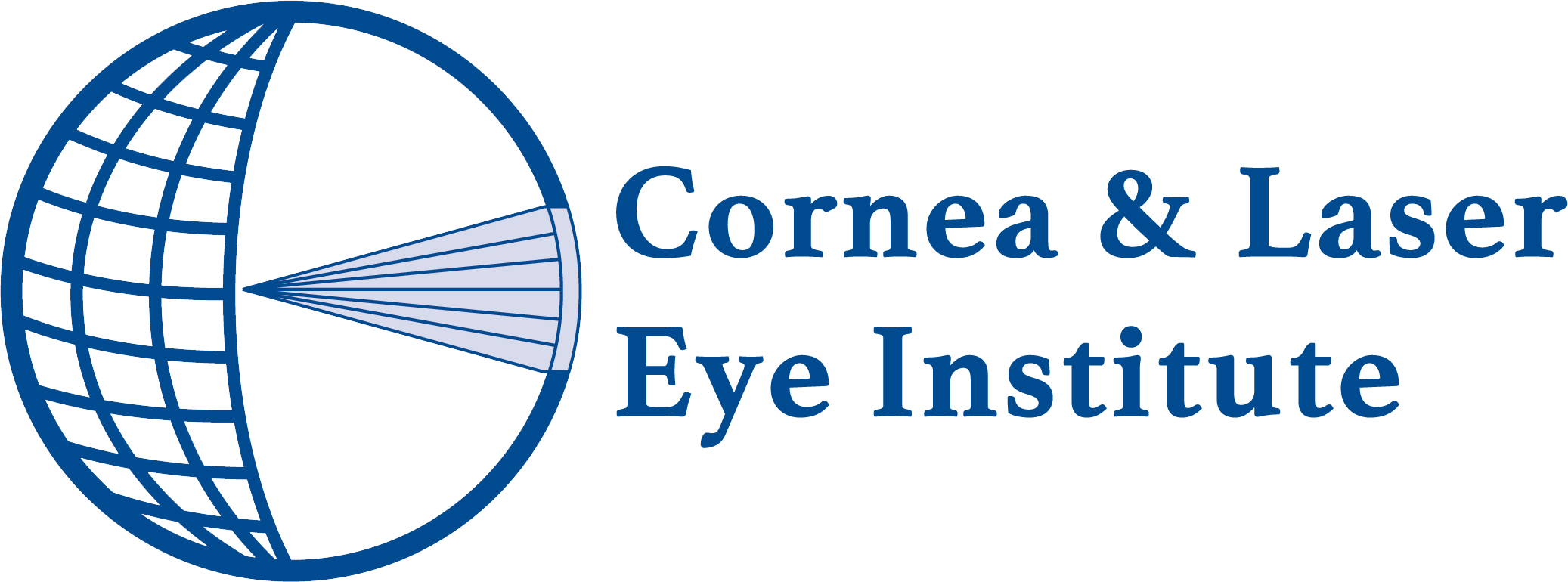Specialty Contact Lenses for Keratoconus & Corneal Disease
Lead by Dr. John D. Gelles, the contact lens division of the CLEI Center for Keratoconus has unparalleled experience in specialty contact lens fitting for keratoconus and other corneal diseases. Specialty contact lenses are the mainstay of visual improvement for individuals suffering from vision loss associated with keratoconus and other irregular corneal conditions. Our center is exclusively devoted to addressing the needs of keratoconus patients.
Specialty contact lenses are only a part of the management for keratoconus and irregular corneal disease management. Keratoconus is progressive in nature and treatments such as corneal collagen crosslinking are vital to slowing progression. Additionally visual correction procedures for irregular corneas, such as topography guided PRK, may improve uncorrected vision and vision with glasses while improving the cornea symmetry. This shape improvement may make contact lenses simpler.
Contact Lenses & Glasses Free Vision Correction

Individuals seeking glasses free vision correction should consider all of the following options: contact lenses, orthokeratology and vision correction procedures.
Over 96% of individuals with refractive errors choose to wear contact lenses for the purpose of glasses free vision improvement. Even with contact lens wear, many still wear glasses at home. Additionally, contact lenses, though great at correcting vision, still require daily maintenance as well as daily application and removal.
For those who are looking to eliminate the use of any vision correcting aids, such as glasses or contact lenses, they should consider a vision correction procedure. Additionally if you have discontinued contact lens and returned to glasses you may still achieve successful glasses and contact lens free vision with a vision correction procedure.
At the Cornea and Laser Eye Institute, our philosophy, for those with normal corneas, is to provide glasses free vision correction for life. We offer every type of contact lens and every vision correction procedure. Our doctors are among the nation’s foremost experts in vision correction procedures and were instrumental in the development of procedures such as LASIK. Dr. John D. Gelles is renown for his expertise in contact lenses. Whichever glasses free correction you choose, you are working with an expert in the field.
Understanding Vision and Refractive Errors
Blurry vision is the result of a misaligned focus of the eye, referred to as a refractive error. This can present as nearsighted, farsighted, or astigmatism. For those with normal eyes, this refractive error can be adequately corrected with spectacles, traditional soft contact lenses, specialty contact lenses, orthokeratology, or refractive surgery. For those who choose contact lens options, there are a variety of contact lenses to improve vision for the following refractive errors:
Nearsightedness: Myopia with or without astigmatism
Farsightedness: Hyperopia with or without astigmatism
Age-related farsightedness: Presbyopia (difficulty reading)
Disparity between eyes: Anisometropia
No intraocular lens: Aphakia
Contact Lenses and Reading Glasses
Everyone at some point in their life will require reading glasses. For those looking to reduce or even eliminate dependency of reading glasses there are a variety of contact lens options. These may be referred to as multifocal contact lenses, progressive contact lenses, monovision contact lenses, extended depth of focus contact lenses or bifocal contact lenses. Each technology has its place but the most important thing to know is there are contact lens options to reduce or even eliminate the need for reading glasses.
Orthokeratology (Ortho-K)
Lenses for Overnight Vision Improvement

For those seeking glasses and contact lens free vision, orthokeratology (ortho-k), also known as vision shaping treatment (VST) and corneal refractive therapy (CRT), offers an overnight treatment which allows for non-surgical, glasses and contact lens free, vision improvement.
As it is not a surgery it can be used on individuals of all ages. For young athletes, this can be an excellent option to eliminate the issues that come with wearing contact lenses or glasses during training and competition. For those with contact lens discomfort, this can eliminate the issues by eliminating day time contact lens wear.
Additionally, orthokeratology can be used until a patient is ready or of age to undergo a permanent vision correction procedure. Orthokeratology utilizes a specialized contact lens, referred to as a ortho-k retainer, which gently reshapes the cornea. The retainer is applied prior to bedtime and worn overnight. In the morning the retainer is removed and vision is improved.
Visual Conditions Ortho-K can Correct:
Nearsightedness: Myopia with or without astigmatism
Farsightedness: Hyperopia with or without astigmatism
Presbyopia: Age-related farsightedness
Anisometropia: Disparity between eyes
Understanding Vision, The Cornea and Orthokeratology (Ortho-K) Treatment
Vision and Corneal Anatomy
The eye is similar to a camera – a series of lenses (cornea and internal lens in the eye) are in place to help focus light on the film or camera sensor (retina in the eye). The cornea is analogous to the front lens on a camera. The curvature of the camera lens determines the focusing power, and similarly the curvature of the cornea determines it focusing ability. Normal corneas have a smooth dome shape, just like a camera lens, and this allows light to focus to a single, sharp focal point.
In a perfect eye this focal point lands on the retina. When this focal point is in front or behind the retina, vision is blurred. Changes to the curvature of a cornea result in movement of the focal point position and when the focal point is moved to the retina, vision is clear.
The cornea is the most important anatomic contributor to focusing light on the retina. It is made of multiple clear tissue layers to allow light to pass through it. In the cross-section image above, 2 main layers can be observed. The front, white, thin layer is the epithelium, which is a surface cell layer. The thicker, clearer layer is the stroma, which is made of a collagen matrix.
The Corneal Shape
The curvature of the cornea is variable from person to person. This curvature is what determines the focusing ability of the eye. When an individual is nearsighted (myopia or myopic) or farsighted (hyperopia or hyperopic), additional lenses, such a glasses or contact lenses, can be used to move the focal point of the eye to improve vision. Another way to move the focal point of the eye is to change the curvature of the cornea. The corneal curvature can be mapped with sophisticated devices called corneal topographers. The image above shows a normal cornea contour. Changes to this curvature is analogous to changing the power of a lens. This moves the focal point to the retina and improves vision. Corneal curvature change can be accomplished by corneal surgeries, such as LASIK, which alters the stromal layer to create the corneal curvature change. Corneal curvature change can also be created non-surgically with orthokeratology. This overnight treatment simply reshapes the epithelial layer.
Corneal Shape Changes with Ortho-K
Before Ortho-K Retainer Wear
Corneal topography map of a normal cornea prior to ortho-k treatment. Image by John D. Gelles, O.D. Copyright © 2020 by the Cornea and Laser Eye Institute. All Rights Reserved
A normal cornea has a dome shape, as seen the map above. This cornea is going to under go treatment with orthokeratology which reshapes the corneal contour. This individual will wear a ortho-k retainer overnight.
After Ortho-K Retainer Wear
In the morning, after removal of the ortho-k retainer, the corneal shape has changed. This shape change alters the focusing power of the cornea, improving vision. This effect is temporary so the retainer will need to be worn nightly. Orthokeratology (Ortho-K) gently and non-surgically reshapes the top layer most layer of the cornea.
Prior to orthokeratology treatment the epithelial layer has an even appearance. Note the distance between the red and green line is uniform.
This images shows the retainer on the cornea, the orthokeratology treatment changes the epithelial layer shape. Note the distance between the red and green line is thinner in the center and thicker in the peripheral cornea.
After the retainer is removed the epithelium retains the altered shape. This layer thickness change is temporarily maintained, this effect may last 1 to 3 days. If treatment is stopped, the cornea will return to is natural shape.
Orthokeratology (Ortho-K), Myopia Management and Vision Correction Procedures
Myopia management will keep the level of myopia at a much lower level. The benefit is vision correction procedures are easier to perform and have better outcomes when the level of myopia is low.
Individuals seeking glasses and contact lens free vision correction offered by orthokeratology should also consider vision correction procedures. Orthokeratology, though great at correcting vision, still requires daily maintenance as well as nightly application and removal.
Our philosophy, for those with normal corneas, is to provide glasses free vision correction for life. We offer every type of specialty contact lens and every vision correction procedure. Our doctors are among the nation’s foremost experts in vision correction procedures and were instrumental in the development of procedures such as LASIK. If you are interested in eliminating the use of glasses or contact lenses, please visit The Cornea and Laser Eye Institute for a consultation.
Contact Lens Options
Cosmetic Contact Lenses
About 12% of contact lenses are worn for the purpose of changing eye color and appearance. These contact lenses are called color contact lenses or cosmetic contact lenses. After manufacturing a traditional or customs soft contact lens, these lenses undergo as second step to tint, dye, print or hand paint the lens to create nearly any appearance from a natural eye color to imaginative eye colors.
Typical color and cosmetic contact lenses use color palettes made to mimic natural iris colors. There are 2 main color types; opaque colors for a dramatic color change effect or translucent colors for a subtle color enhancement.




